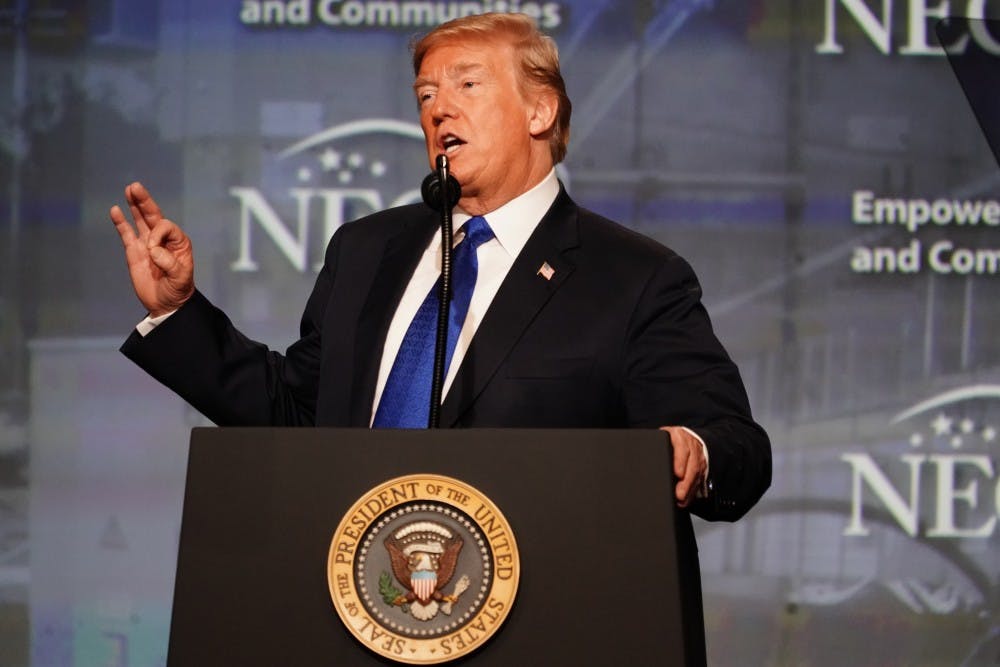Philadelphia will be one of 48 counties in the country that will receive additional funding and resources to reduce transmission of HIV, which is part of President Trump's plan to eradicate the virus by 2030.
The plan, announced by President Donald Trump in his State of the Union Address on Feb. 5 and outlined by the Department of Health and Human Services, will include 48 counties across the country, as well as Washington, D.C., San Juan, Puerto Rico, and seven other states. The 48 counties had more than 50 percent of new HIV diagnoses in 2016 to 2017, according to the HHS’s online summary of the plan.
The plan will focus on four key strategies called "Diagnose, Treat, Protect, and Respond.” It will also fund both new and existing programs in the target locations, including the Ryan White HIV/AIDS Program, a federally-funded program providing medical care and support services to low-income individuals living with HIV. The plan will also provide funding to create local HIV HealthForce programs, which will expand HIV treatment and prevention.
The Philadelphia–Camden–Wilmington metropolitan area has the 33rd highest rate of HIV diagnosis out of 108 areas, according to the Centers for Disease Control and Prevention in their 2017 HIV surveillance report.
Although the exact details of the funding sources and allocated amounts have not been outlined, they are scheduled to be announced in Trump’s next budget proposal next month, the Philadelphia Tribune reported.
In their latest report, the Philadelphia Department for Public Health reported that HIV prevalence in Philadelphia was highest among non-Hispanic Blacks.
Philadelphia’s public health commissioner Tom Farley told the Philadelphia Tribune it is unclear whether Trump’s plan is entirely new. He said Philadelphia has already taken many of the steps to reduce HIV incidence outlined in the plan, such as funding efforts and similar outreach programs.
HIV eradication is as much a social problem as it is a medical one, HIV program director at Einstein Healthcare Network Aviva Joffe told the Philadelphia Tribune. Factors that hinder HIV eradication efforts include inequality, poverty, racism and violence, she said.
Related
Penn Nursing receives highest NIH funding for second year in a row
Penn Dems State of the Union watch party features bingo, laughter, and doubt
Penn has played a key role in HIV research advancement. In 2017, Penn professor George Shaw received $16.3 million in funds to help speed up his work in developing an HIV vaccine.









